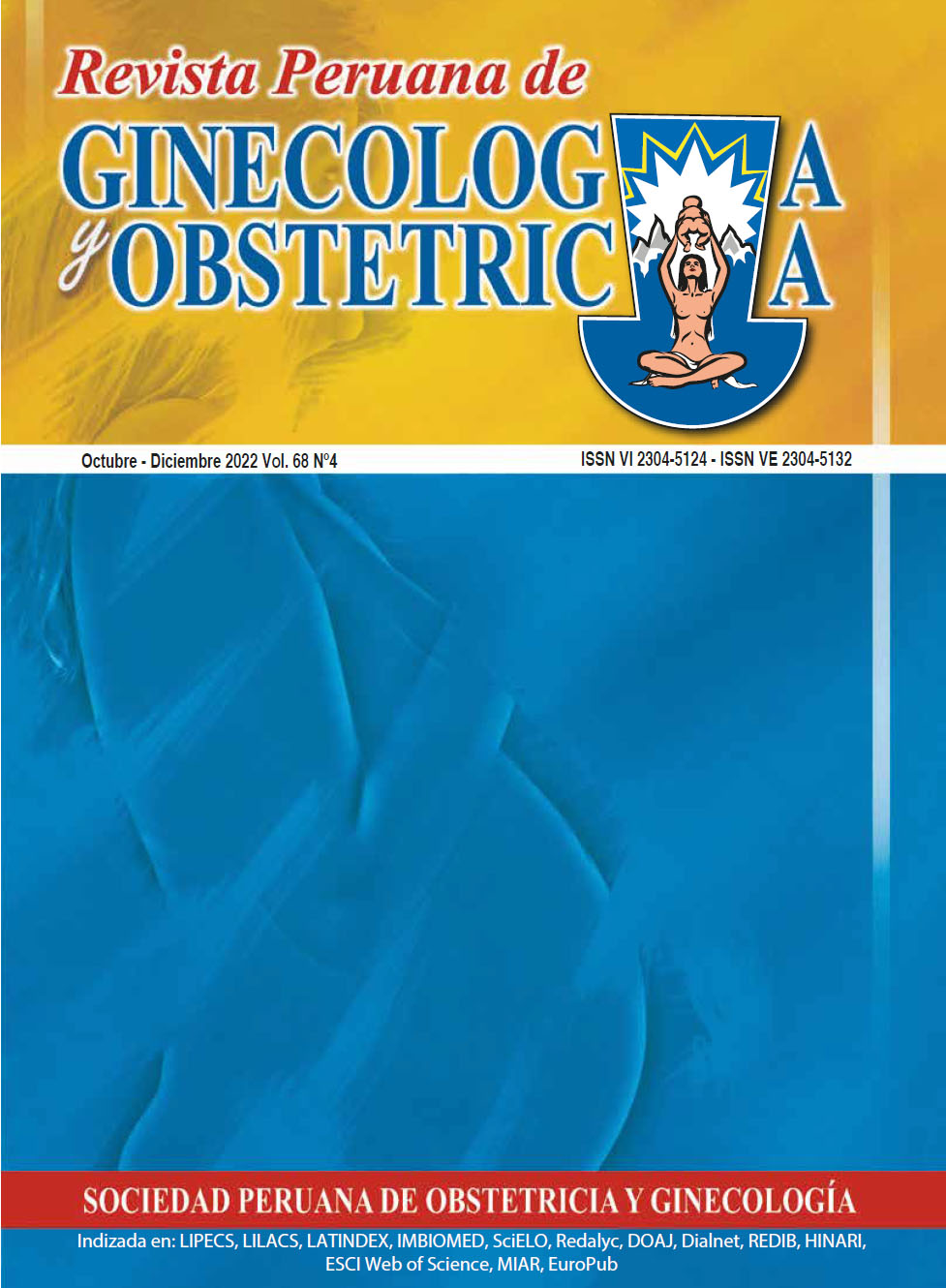The long-term postpartum anxiety and depression outcomes for mothers with COVID-19 during pregnancy
DOI:
https://doi.org/10.31403/rpgo.v68i2452Keywords:
COVID-19, Pregnancy, Postpartum, Depression, Anxiety, Beck anxiety inventory, Beck depression inventoryAbstract
The COVID-19 pandemic is associated with negative mental outcomes in the early
postpartum period. Objective: To assess the long-term postpartum mental health of
women infected with COVID-19 during pregnancy. Methods: Cross-sectional study
in 101 pregnant women who gave birth in a tertiary center during the COVID-19
pandemic, between March 31, 2020, and November 30, 2021. The pregnant women
were classified into 2 groups as COVID-19 positive (study group, n=52) and COVID-19
negative (control group, n=49). Sociodemographic and obstetric data were collected
by questionnaire in the early (≤6 months) and late (6-18 months) postpartum
periods. Beck Depression Inventory (BDI) and Beck Anxiety Inventory (BAI) scores
were calculated by analysis of the participants' data. Results: The mean BDI score
and the rate of depression (BDI score >13) in COVID-19 positive patients were higher
in the early postpartum period than in the late postpartum period. According to
multivariate linear regression analysis, there was a significant correlation between
the BDI score of COVID-19 patients and educational level and employment status.
According to the same analysis, there was a significant correlation between the BAI
score of COVID-19 patients and spousal support, marital relationship, and birth-
related diseases. We found that COVID-19 positive and COVID-19 negative patients
had similar BDI and BAI scores in the early (≤6 months) and late (6-18 months)
postpartum periods. In addition, rates of anxiety and depression were similar in
both groups at the same postpartum periods. Conclusion: In our study, COVID-19
infection in pregnancy had no significant additional impact on long-term postpartum
maternal mental health.
Downloads
Downloads
Published
How to Cite
Issue
Section
License
Copyright (c) 2022 Tayfun Vural, Burak Bayraktar, Suna Yildirim Karaca, Kadir Ascibasi, Nilufer Saygili, Ozan Odabas, Gulsum Damla Onal Erdemir, Ozgun Akbas, Yasemin Eser, Muge Selcuk, Ozlem Oruc, Ozge Kilinc

This work is licensed under a Creative Commons Attribution 4.0 International License.
Esta revista provee acceso libre inmediato a su contenido bajo el principio de que hacer disponible gratuitamente la investigación al publico, lo cual fomenta un mayor intercambio de conocimiento global.















